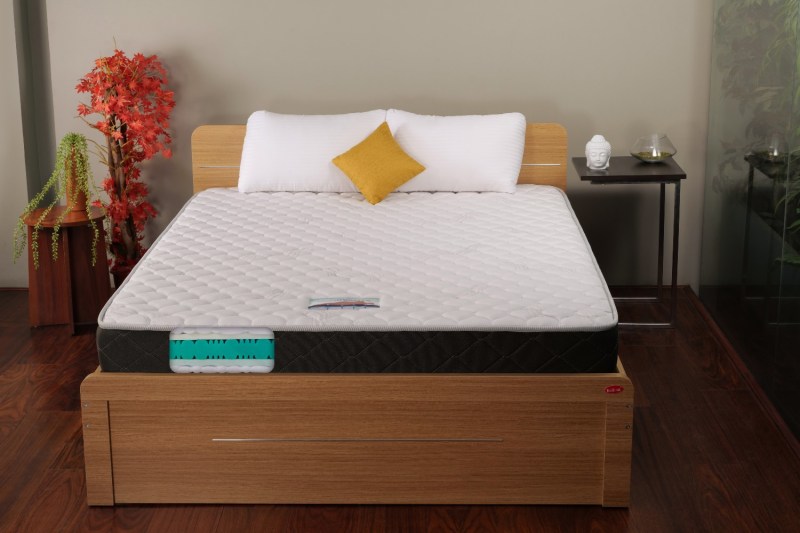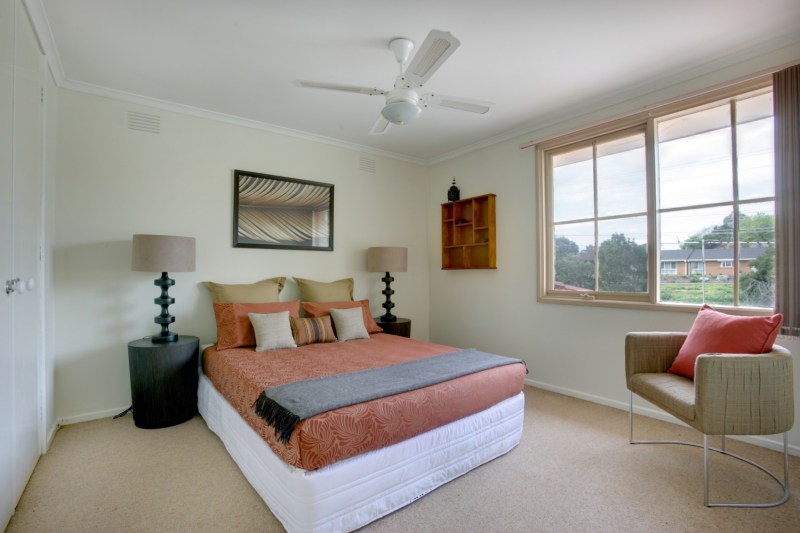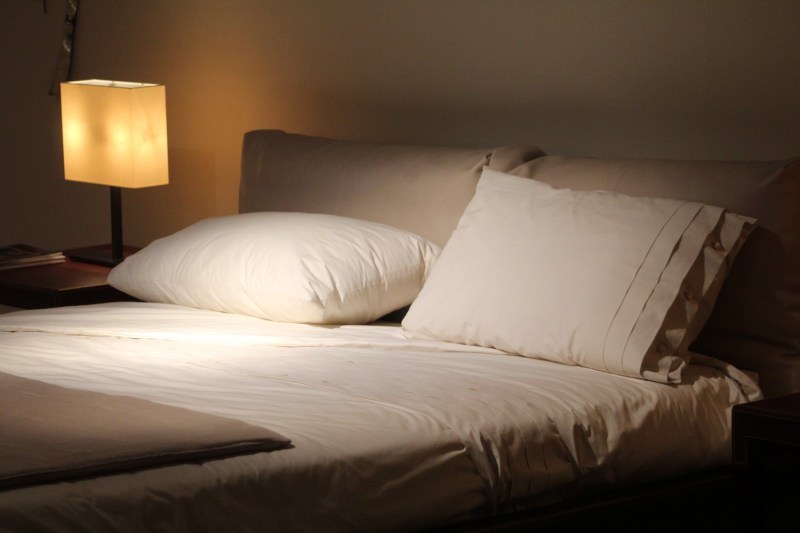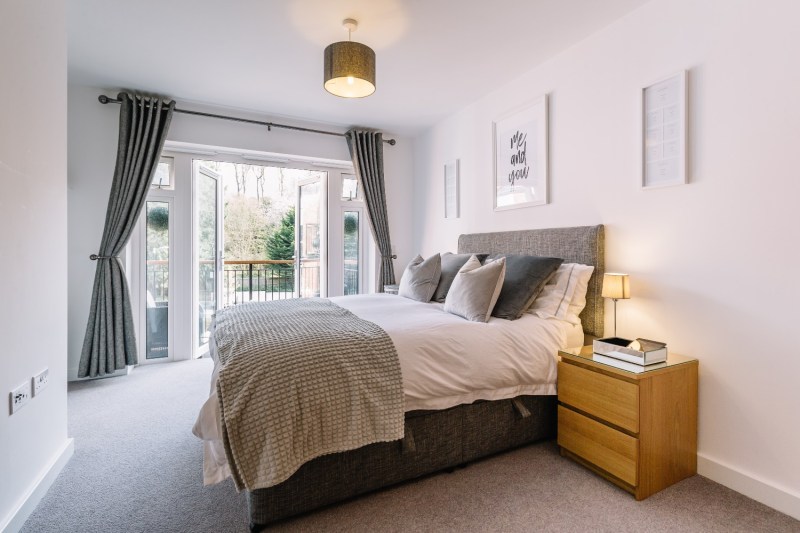
Of all the rooms you’ll spend time in over the course of your life, one of the most important is your bedroom. It’s where you start and end your day, and your mood when you wake up can affect your performance and attitude as you head out to take on the day.
When getting ready for bed at night, if you take the stresses of work and life to bed with you, you’re just not going to sleep well. As the place where you rest, recharge, and recenter yourself, your bedroom should be a sanctuary, a calming place that allows you to fully let go, relax, and get a good night’s sleep.
As it turns out, there are many ways your bedroom may not be set up to be the most relaxing place in the world. From chaotic, vibrant colors to unwanted clutter, a messy, disorganized room can be full of distractions that keep you from getting those eight hours of shuteye. Here are some of the ways you can outfit your room to be your very own sleep sanctuary.
No electronics

This may be a tough habit to break, but it’s an absolute must. Experts agree that the blue light emitted by our smartphones, smart TVs, and other modern electronics is disrupting our natural circadian rhythms by suppressing melatonin production and keeping us from dozing off and sleeping properly. When you don’t sleep well, you may experience a host of detrimental effects like fatigue, reduced productivity, and impaired cognitive skills.
If you’re finding that you’re just not sleeping well, your gadgets might be the cause. Turn your bedroom into a no-electronics zone. Take the TV out, or if you really want to keep the TV in the room, at least place it in a cabinet, so it can be put away, and so you can kick the habit of falling asleep with the TV on. Power down all tablets and computers, or better yet, get into the habit of putting those away at least an hour before bedtime.
If you can, try keeping all your internet-enabled devices out of the bedroom entirely. Charge phones in a different room, and invest in a traditional alarm clock (or at least a smart speaker with no screen) to help you wake up.
Invest in a high-quality mattress and bedding

It doesn’t feel good when you’re tossing and turning throughout the night, which can wake you up or disrupt your sleep pattern. You want your bed and the materials on it to be as comfortable as possible, helping you keep cool and feel supported throughout the night. You also want them to last a long time, since good mattresses and linens are pricey purchases. They will be in your life for quite a while, and it’s where you spend eight hours every day, so it’s worth the investment.
For mattresses, it really depends on the individual. Do you need more support for your back? Do you prefer super soft mattresses, ones that are more durable, or some combination of both? Think about your needs during sleep, and if your current mattress isn’t meeting them, do some research to find a better brand.
After the mattress comes bed sheets. You want sheets that are soft, sheets that feel good against your skin, sheets that don’t wrinkle too easily, and sheets that will hold up for a long time. While a high thread count is a factor to consider, it’s not the be-all-end-all; the type of fabric/material trumps thread count. When it comes to the softest, most durable type of fabric for bedding, you can’t beat high-quality fabric like Egyptian cotton and Pima cotton. Silk sheets are also popular. You should also be sure to invest in good duvets and blankets for cold weather.
Find the right temperature

In a similar vein, to be as comfortable as possible throughout the night, you want your bedroom to be a good temperature. Experts say that 65 degrees Fahrenheit is the best temperature for sleep, as it matches the decrease in temperature your body goes through at the end of the day; it’s cool but not too cold. Since everyone has their own preference, find a temperature that’s comfortable and relaxing for you.
Remove all light

Darkness is key for sleep production. Invest in blackout curtains. Even if you have shades in your bedroom, having blackout curtains over them makes the room completely dark to help you create a sleep sanctuary of darkness. Also, an eye mask to block out light is another way to keep light out. So, by keeping your bedroom dark, you create an environment that optimizes your body’s natural sleep-wake cycle. This can lead to deeper, more restorative sleep and better overall health.
Keep it clean and free of clutter

Just as you don’t want electronics to be distracting you while you’re trying to wind down at the end of the day, you don’t want any other distractions keeping your eyes open, either. A disorganized, cluttered room with messy piles of clothes or unsorted heaps of assorted junk doesn’t help when you’re trying to achieve a sense of calm, so always keep your room in good order.
Make sure your bedroom is clean and tidy, and organize things that need to be organized. Don’t leave dirty clothes lying around. Try to keep your bedside table free of clutter. Studies have even shown that making your bed every morning can help you sleep better at night, so if you don’t do so already, that may be a new habit to add to your morning routine! One handy way to make sure you can stay on top of keeping your room clean is keeping it minimal — only have what you need.
Paint the walls with soothing colors

Color has an impact and effect on our moods. If you’re trying to channel zen vibes into your room, the color scheme needs to reflect that. Paint the bedroom a soothing color, or try soft and neutral shades of green or gray. This will help calm your mind at the end of the day and ease you into wakefulness in the morning.
Use calming scents

No one wants to go to sleep or wake up to the smell of dirty clothes or stale air. If you want your room to be an oasis, it should smell like it. Certain scents have been shown to improve sleep, so treat yourself to some aromatherapy by investing in an essential oil diffuser or finding essential oils or balms you can apply directly to the skin. Across the board, lavender is regarded as the best scent for rest and relaxation, followed by sandalwood, jasmine, rose, and bergamot.
Keep it breezy

Even if you use essential oils or other methods of keeping your bedroom smelling nice, you still want to make sure there’s good ventilation to keep plenty of fresh air in the bedroom. Studies have shown that indoor air keeps airborne pollutants trapped and recirculating in the space, so airing out your bedroom at least once a day allows fresh air and sunshine to come in, removes dust, helps prevent mold growth, and more. All it takes is about 15 minutes, so get in the habit of airing out your room once or twice a day.



